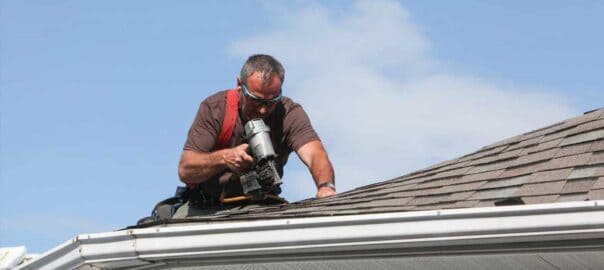Let’s be honest—roofs aren’t exactly the most glamorous part of your home. They don’t get the attention of your shiny new kitchen or the cozy living room with the fireplace, but your roof is essential for protecting your home. But, let’s face it, without a solid roof over your head, you wouldn’t have the kitchen or the fireplace. Your roof is the unsung hero of your home, quietly protecting you from the elements, day in and day out.
That being said, people believe some pretty strange things about roofing. From thinking “roofing shingles last forever” to assuming a DIY roof repair is just as good as calling in a professional, there’s a lot of misinformation floating around. So, let’s clear the air and debunk some of the most common roofing myths.
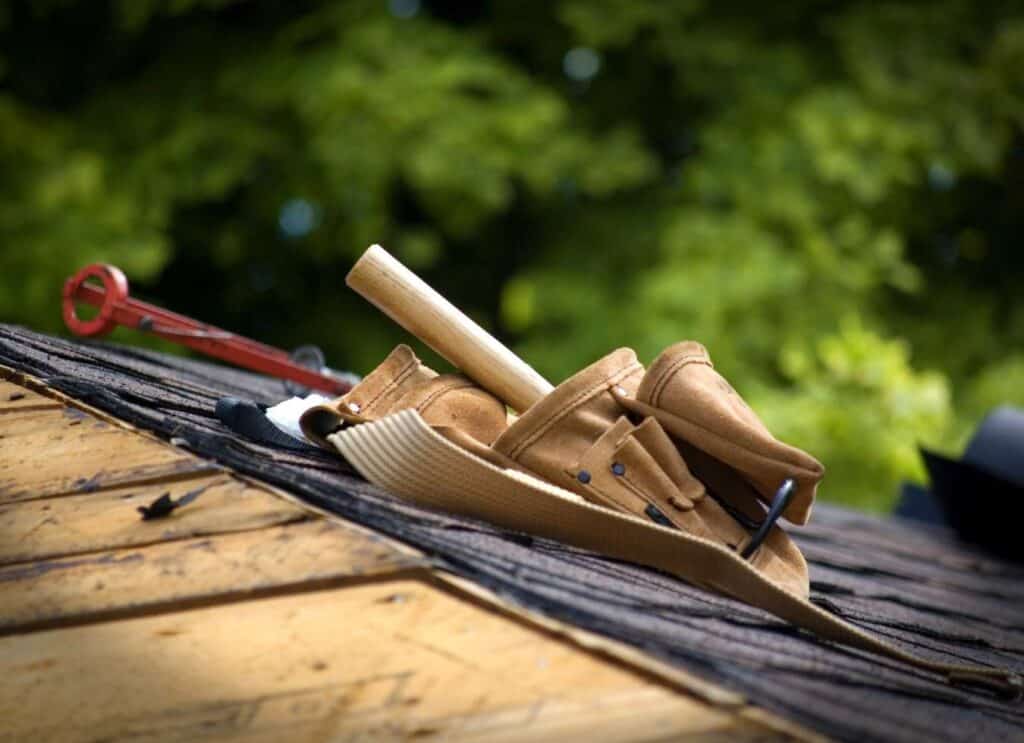
Ready to be a roofing myth-buster? Let’s dive in.
Myth #1: Roofing Shingles Last Forever
Ah, the dream that your roof will never need replacing. If only that were true! Unfortunately, like that favorite pair of shoes that eventually fall apart after years of hard use, roofing shingles, a common roofing material, have a lifespan. Depending on the type of shingles you have, their lifespan can vary.
- Asphalt shingles typically last about 20-30 years—but, of course, that depends on factors like climate, maintenance, quality of the installation, and proper ventilation. In Colorado, where we see everything from blistering hot sunny days to golf ball-size hailstorms in hours, your shingles could wear out sooner than expected if they aren’t well-maintained.
- Metal roofs can last 30 to 60 years but are not invincible. Extreme weather conditions can still cause damage.
If you’ve had the same shingles for decades, you might be pushing the limits of their lifespan, and it’s time to have your roof inspected. So, no, your roof is not a forever investment, no matter how good it looks from the street or what your Roofer has told you about the quality of your shingles.
Myth #2: A DIY Roof Repair Is Fine
Let’s get this out of the way—DIY roof repairs sound like a great idea. After all, YouTube has tons of tutorials, and how hard can it be to slap some shingles up there? Well, as fun as it is to pretend you’re Bob the Builder, roofing is a highly specialized job that requires experience, tools, and a solid understanding of safety, especially with steep slopes and multiple-story residences.
Here’s the deal:
- DIY repairs: These can cause more damage than good. Improperly installed shingles or repairs can lead to leaks, which might not show up immediately but can wreak havoc over time.
- Safety matters: Roofing is dangerous. You risk injury if you’re not accustomed to working at heights, hanging off ladders, or using roofing equipment. Remember, it’s not just the shingles you’re handling—the flashing, underlayment, and the steep and sometimes slippery slopes to contend with.
- Insurance issues. If you don’t have a licensed roofing professional install or repair your roof, you might not be covered if something goes wrong. A few improperly nailed shingles can cause leaks and interior damage. That’s why it’s always best to call in the pros—people who know what they’re doing and are licensed, insured, and experienced in handling simple and complex roofing issues.
While DIY projects can be fun weekend endeavors, your roof is not one of them. In the long run, hiring a professional like Denny’s Roofing is always safer and more cost-effective.
Trust us—your roof will thank you.
Myth #3: Roof Leaks Are Always Obvious
One of the most dangerous misconceptions about roofs is that roof leaks are easy to spot. Something is wrong if a large section of your roof is missing or you see a giant puddle in your attic. But leaks can be much sneakier than that.
Tiny leaks can take months, even years, to manifest. And when you finally spot them, they may have already caused significant damage. Water might travel down your roof, across trussing, and into your walls or ceiling, so by the time you see water stains, the issue might already be widespread, or it could be a long way away from the spot on the ceiling that brings it to your attention. We always see unusual situations, which can remind homeowners to debunk common roofing myths that can lead to costly repairs.
So, how can you protect yourself from sneaky leaks?
- Regular roof inspections are essential. Having a professional roofing company like Denny’s Roofing Inspecting your roof regularly can help catch minor issues before they become big, expensive problems, ultimately protecting your home.
- Pay attention to your attic. If you start to see mold, wet insulation, or strange musty smells, it might be time for a roof check-up.
- Watch for leaks. Roof leaks don’t always make their presence known by dripping water onto your kitchen table, so stay vigilant and look for any red flags.
Myth #4: That Roof Maintenance Is Optional
Who needs roof maintenance when their roof looks fine? Wrong. Routine maintenance is a key factor in keeping your roof in tip-top shape. Neglecting it is like refusing to change the oil in your car—you might get away with it for a while, but eventually, things will go south, and many myths about roofing can lead homeowners to overlook this.
Here’s why maintenance is so essential: it can significantly enhance your home’s energy efficiency.
Preventative care is essential for ensuring the longevity and durability of your roof and can extend its life. Regularly clearing debris, checking for damaged shingles, and ensuring proper drainage can keep your roof functioning correctly for years.
Avoid costly repairs by understanding the importance of maintaining your roof and debunking many myths surrounding it. Minor issues can turn into huge problems if left unchecked. A missing shingle or clogged gutter may seem minor, but they can lead to more extensive damage, such as leaks, rot, and mold over time.
Protect your investment. A roof replacement can be expensive, but regularly maintaining your roof can help avoid unnecessary costs. If you keep your roof well-maintained, you may even be able to extend its lifespan beyond the average expectancy!
Myth #5: All Roofers Are the Same
Not all roofers are created equal! Just because someone has a hammer and a ladder doesn’t mean they’re qualified to work on your roof. When it comes to hiring a roofing contractor, there are some key things you’ll want to look for:
- Licensing and Insurance: Always check that your roofer is licensed and insured. This protects you if something goes wrong during installation or repair.
- Experience: Experience in roofing can help you understand the durability and longevity of different roofing materials. You don’t want to hire a roofer; you’re still figuring things out. Look for a roofing company with a solid reputation and plenty of experience in the industry. During storm season, many carpenters decide to tell folks that they are roofers when it’s not their main gig.
- References: A good roofer should have no problem providing references from satisfied customers. If they don’t, you might want to look elsewhere.
If you’re in Colorado, be aware of the common roofing myths debunked that could mislead homeowners about their roof’s needs. Denny’s Roofing has been a trusted name for years, and we pride ourselves on providing top-notch service, quality work, and peace of mind for our clients. We’re the kind of company that treats your roof like ours.
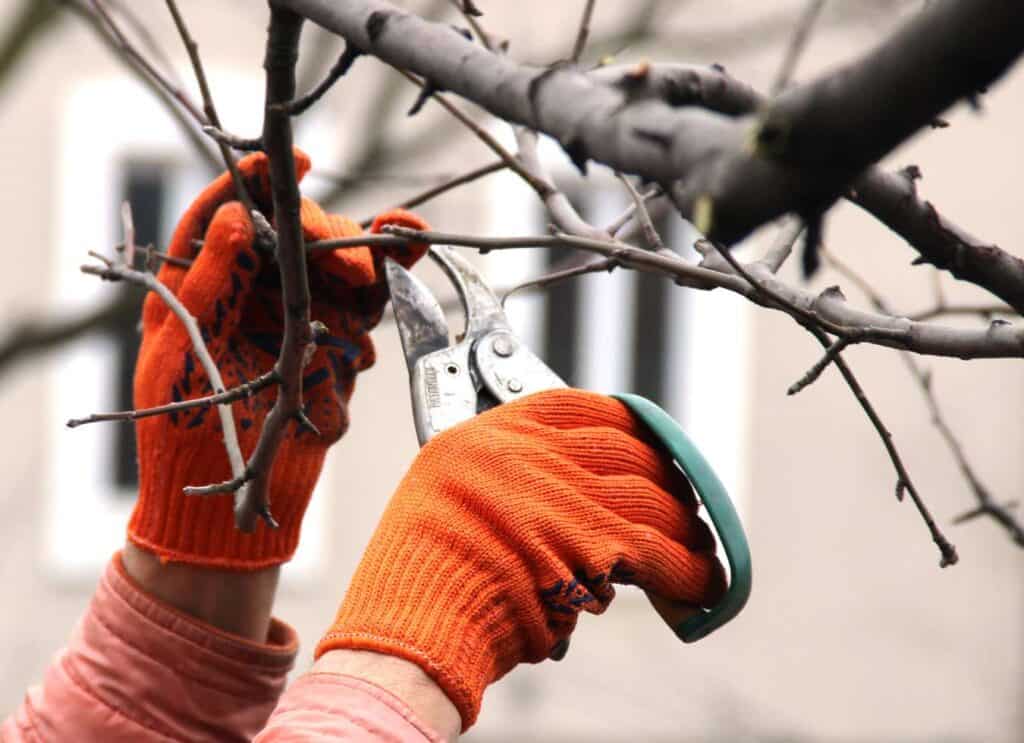
How to Protect Your Roof and Extend Its Life
Now that we’ve busted some myths let’s talk about how to keep your roof in great shape. With just a little effort, you can extend the life of your roof and keep it looking as good as the day it was installed. Here’s how:
- Clear your gutters: Clogged gutters are one of the biggest culprits of roof damage. Clear out leaves and debris regularly, especially in the fall and again in the spring.
- Trim overhanging branches: Overhanging tree branches can scratch and gouge your shingles or break off the tree and fall onto your roof during a storm, leading to many myths about roof safety. Trim back any branches too close to your roof.
- Check for algae, moss, or animal dung: Algae and moss can grow on your roof in humid conditions, leading to discoloration and eventual shingle damage. If you see this happening, clean it before it becomes a more significant issue. We don’t see this come up often on the Front Range, and when we find a roof with a sizeable northern exposure and clogged gutters, they can drip for weeks and cause algae to form. We DO find raccoon poo up on roofs reasonably frequently, which can be a sign of neglect and can lead to many myths about roofing safety. If it does not get removed, it can hurt the shingle over time.
- Ensure proper ventilation: A well-ventilated attic can help regulate temperature and moisture, reducing the risk of ice dams and shingle damage. Make sure your attic is adequately ventilated for the best roof performance.
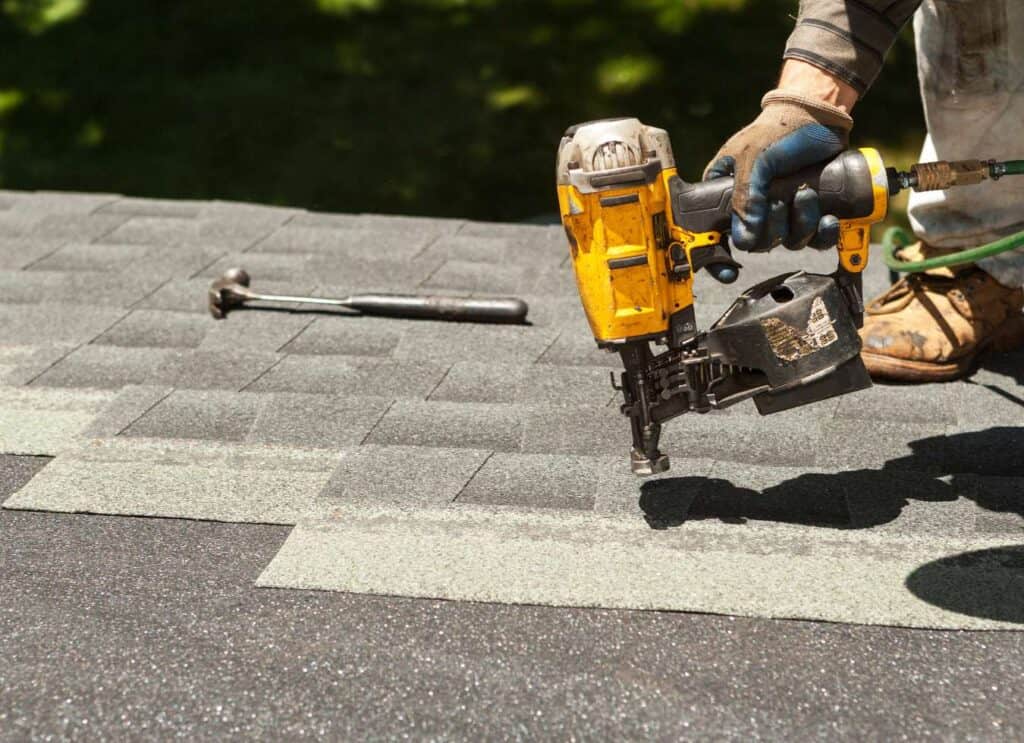
Other Popular Questions We Get About New Shingle and Regular Inspections
Q: What are some common roofing myths debunked that homeowners should be aware of?
A: Many homeowners believe in common roofing myths and misconceptions that can lead to costly mistakes. Debugging these myths is essential to help you make informed decisions about your roof.
Q: Can I install new shingles over old ones?
A: While it may seem convenient, installing new shingles over old ones can lead to issues. Many roofing experts recommend removing the old roofing material to ensure proper inspections and maintenance.
Q: Do I need to clean my gutters for roof care?
A: Yes, regular maintenance, like cleaning gutters, is crucial. Clogged gutters can cause water damage to your roof and lead to wear and tear, affecting lifespan.
Q: Is it true that all roofing materials are the same?
A: No, roofing materials vary significantly in quality and lifespan. Choosing the right roofing material requires specialized knowledge to ensure it meets your home’s needs.
Q: How often should I have my roof inspected?
A: It’s recommended that homeowners have their roofs inspected at least once a year. Regular inspections can help identify issues early and prevent costly repairs.
Q: Can I handle roofing repairs myself to save money?
A: While homeowners can do minor repairs, roofing requires specialized skills. Attempting significant maintenance without the proper knowledge can lead homeowners astray and result in more extensive damage.
Q: Do roofing warranties cover all types of damage?
A: Not all roofing warranties cover every type of damage. To make informed decisions about your roof, it’s essential to read the terms carefully and understand what is included and what is not.
Q: Will a new roof increase my home’s value?
A: A new roof can significantly increase your home’s value and curb appeal. However, homeowners should choose the right roofing material to maximize this benefit.
Q: Are all roofing contractors the same?
A: No, roofing contractors can vary widely in experience and quality of work. Researching and choosing a reputable contractor is essential to avoid common roofing myths and provide quality roofing services.
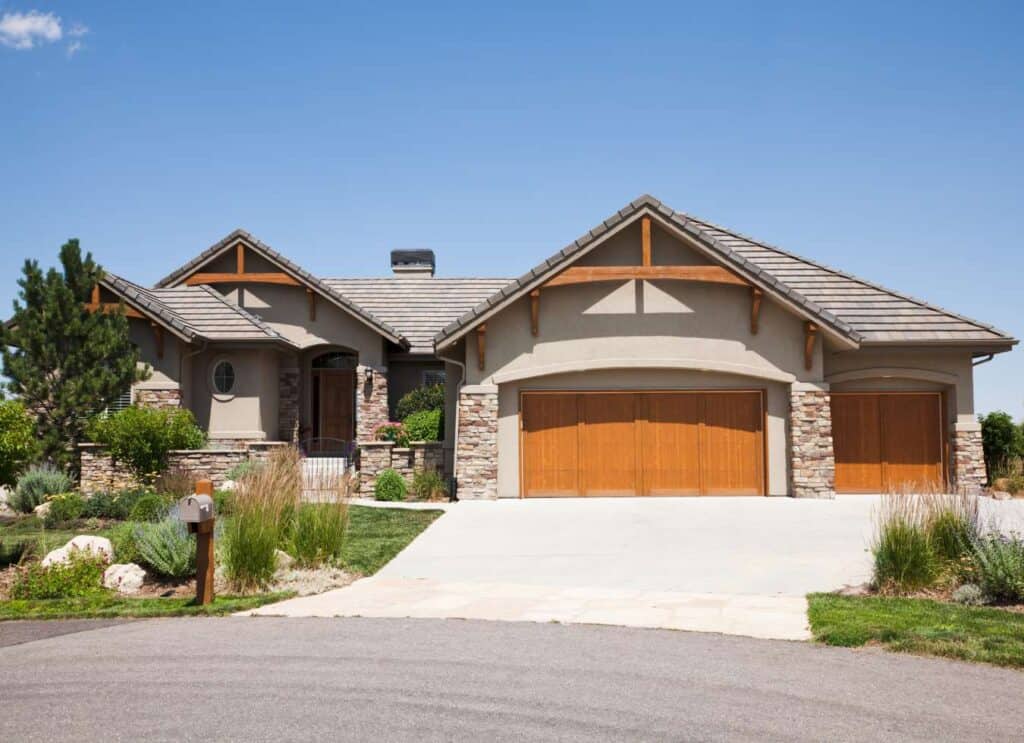
In Conclusion, Roof Care Doesn’t Have to Be Complicated
Don’t let roofing myths fool you—your roof isn’t invincible and doesn’t take care of itself. But with regular maintenance, timely repairs, and a little know-how, you can keep it in great shape for years.
If you’re in Colorado and looking for expert roof care, Denny’s Roofing has you covered. Whether you need a complete roof replacement, a simple repair, or a check-up, we’re here to help. Don’t wait until that sneaky leak becomes a big problem—contact us today for a free consultation!
Ready to give your roof the attention it deserves? Consider the energy efficiency and longevity benefits of a new roof. Call Denny’s Roofing today for expert advice, quality service, and roof care to keep your home safe and stylish for years!

